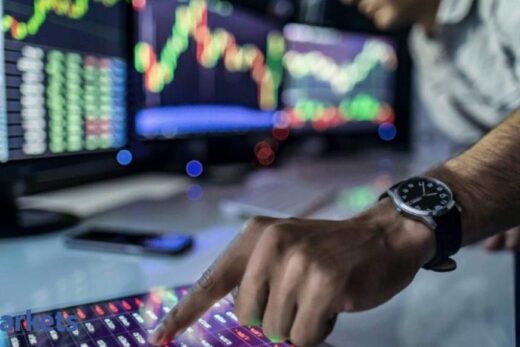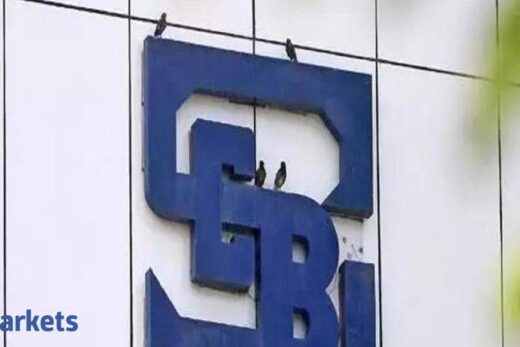Overall on the domestic front, how do you see things improving?
The economy is picking up compared to where we were six or nine months back and from that point of view, things are in a much better shape. Clearly one does not know how the second wave of Covid, which seems to be focussed significantly on Maharashtra, will shape up. The reality is that valuations are not what used to be one year back when the market was really cheap. Now markets are not that cheap and clearly we are going to see volatility ahead. That will continue as long as there is news of Covid.
But the real risk will come when the US will decide to go more hawkish or want to stop quantitative easing or want to hike rates. That is the real risk which will finally bring down the market significantly. It is outside the domain of anyone in India but from an India angle, economies are improving and earnings should certainly be much better than what we have seen in this 2013 to 2020. The 2013-2020 phase was dominated by deflation which is basically a problem of one person’s output when one person’s output price comes down and earnings are bad. But now prices of commodities like steel, aluminium and zinc are going up and we have a situation where it leads to fantastic earnings. That is why we will have a much better earnings period at this point of time than in 2013-2020.
To sum up, we are in a different environment than one year back. We are going to see volatility which is a reason why we have been recommending dynamic asset allocation. The real problems will come when the global central banks decide to spoil the party by taking a hawkish stand.
What about our own central banks? Do you see any shift when it comes to policy back home over the next couple of quarters?
If you look at the statements made in the monthly bulletin of Reserve Bank of India or the numerous interviews given by the Reserve Bank Governor, he is actually telling the markets to be more dovish and the markets are actually more hawkish than the central bank. In India, credit growth is really low. In my 31 years of working, how many years have we had where credit growth is at 5-6%? Instead, all the top corporate are just deleveraging.
The business cycle in India is much more tepid than what we see in the US. The central bank has been rightly telling the markets that we have got liquidity, we have got so much of dollars and we have got all these things, so please do not worry too much. But the reality is that all of us are so fixated globally and the global situation is very different because the US has pumped so much of money into the market and a new infrastructure bill is coming out of the US.
The rising US 10-year yields are giving rise to this situation. But I would not worry so much. Look at the surplus money sitting with the Reserve Bank. There is a lot of scope for interest rates to go down in various ways in India. But somehow it does not go down and I would say that India’s economic cycle or business cycle is behind the US and I do not think there is much scope as so we do not see the evidence of any exuberance in the Indian business cycle. Rather, we have to worry about the exuberance in the American business cycle.
If you look at the last one week, although there was no impact on the Indian equity market, but if you look at the Don Wang issue, you will find that a small family office managed to take $30-40 billion of leverage and invested in so many companies that it caused losses to two or three banks. I do not know much beyond that and so I believe that it is the exuberance of the US business cycle which is something which worries us at this point of time.
If you look at the macro in India, we have a situation where the current account deficit is hardly there, inflation is reasonable and there is no high credit growth. We do not have any evidence of extreme risk taking at this point of time. The only risk taking that I saw was that some of the IPOs saw very high QIPs and HNI subscriptions. But there also we have seen IPOs opening below issue prices. So any evidence of exuberance is less at this point of time. We are in a comfortable stage of the Indian business cycle but not so globally.
While it is impossible to predict liquidity, the truth here is when FIIs sell, the back of the market gets broken. There have been instances in a few days in March and plenty of days in February. The biggest concern right now is what happens if the FII flows reverse?
That is the risk at this point of time which prompts us to recommend asset allocation and dynamic asset allocation kind of products to investors. We are living in a globalised world and in a globalised world what matters to equity markets is not just local conditions but also global conditions. One cannot say I am living in some isolated market unconnected to what is happening in the world. We are connected to the world and we can see that finally one day when the Fed decides to become hawkish, you are going to see global markets fall all across the world including India significantly. The only way the risk can be addressed is by following a dynamic asset allocation approach.
I was very happy to see that when the Don Wang event happened Asian markets and the Indian market did not fall. But I do not think that is going to be the situation in future. The global central banks have pumped in trillions of dollars. At some point of time, when the trillions of dollars is taken away, there will be volatility in Indian equity markets. The only way in which all these issues can be handled is by careful asset allocation.
If one is trading directly in equities, be disciplined and if you are not capable of being disciplined yourself, then you have to go through the mutual fund route because otherwise there have been so many periods of time when the markets were very volatile and it appeared that the markets will keep going down. Suddenly, the markets recovered. We are in a framework where you are going to see volatility and unless you are disciplined you have got a lot of challenges ahead.
We understand from your peers that the pressure on redemption has minimised. It is not that the net inflow is positive but the numbers that we were looking at in December and January, have come down dramatically. What has been the experience at ICICI Prudential?
I am impressed by the way Indian investors have been behaving because last March frankly when the markets were panicking they did not take money and we got the opportunity to invest aggressively, particularly in our asset allocation strategies and when the markets went to records and crossed 50,000, they took out money. So people have shown that level of discipline. I must thank all mutual fund distributors and investors in this whole journey because that is why we saw redemptions when markets crossed 50,000. When the market corrected in February and March, they actually reduced their redemptions. Luckily now we have daily data. So what I am telling you is public information technically.
I believe that it is very healthy development and I have seen that this is a positive. As long as investors take out money when markets rally significantly and invest when markets correct significantly, they are going to have a very good investing experience through mutual funds.
How about thanking the media? We have been big advocatories of buying fear and selling greed.
No, no I am sorry. In March 2020 you gave me a platform on the day the market fell 10% to communicate to everybody that today is the day to invest. How can I not thank you for it?
Assuming that we are in a strong patch for commodities whether it is steel, copper, sugar, coco or even coffee — what will happen to the consumer? At what point in time will it start effecting the consumer and also some of those haloed consumer stocks?
We have always been in the camp that all these commodity companies can do very well and that comes out of our belief that if you have a long period of underinvestment in any commodity, you are going to see those prices go up. If you look at it today, there are hardly any big investments coming out of any commodity industry at this point of time. You are seeing chronic underinvestment in commodities. In fact, some of the commodities where I see chronic underinvestment includes oil and that has been my biggest worry at this point of time.
Thanks to all these various other things that are happening even oil is a commodity where there is underinvestment. In between, shale had overinvestment but now there is chronic underinvestment even in oil and this is a big risk. I believe that the current cycle resembles the 2002-2008 cycle where commodities did well and while the commodity user industry did not do that well, they did not give bad absolute returns. They gave bad relative returns at some points of time in the cycle. But overall, when the commodity industry does well, the economy somehow does well. During 2002-2008, oil went up but the economy also did pretty well. And this baffles me.
On the other hand, in the 2008-2020 period, when oil did badly, the economy did not do well. Why is it that the economy tends to do well when commodity does well is something which has baffled me but somehow I think that inflation is something which is slightly good for the world and I did not know that till 2008 that deflation is a bad word. After that, thanks to Ben Bernanke and many of the global central banks, I realised that deflation is a bad word.
But I think again we are in this cycle from March 2020 where we are seeing inflation and inflation is a slightly good word for the entire world because somehow inflation leads to more economic activity and people actually sell goods faster. Take for example real estate. Look at the kind of real estate deals that have happened in the last six months.
It has come out of the fact that inflation has come in real estate and therefore people have just gone ahead and booked flats or bought flats or done something like that.
So inflation is good for transactions and for advancement of transactions. Deflation is bad for transactions because it tends to delay transactions. This is what I have learnt. So I think yes commodity users are affected but I think even in the 2002-2008 cycle, we saw steel prices shooting up. None of the commodity companies collapsed and none of the auto companies collapsed, none of the users of auto companies or steel companies like the capital good companies collapsed.
So somehow, when metal companies do very well, while the user companies may do relatively badly compared to the metal companies, nothing much happens to them. They manage because metal companies are doing well because demand is good. So I do not think you have to fear it.
As far as all these consumer companies and all these things are concerned, they look overvalued to me. They have looked overvalued to me three years back. They looked overvalued to me one year back but they are quality companies and so they tend to be overvalued most of the time. With my kind of investing mindset, I have to look for other stocks which outperform them. So while they are quality companies and they are great companies, I have to find other stocks which can do better than them. Luckily the last one year has been very good for such styles but we have gone through a period where it was very bad for such styles but we have come out of it. I hope it continues like this for quite some time.



